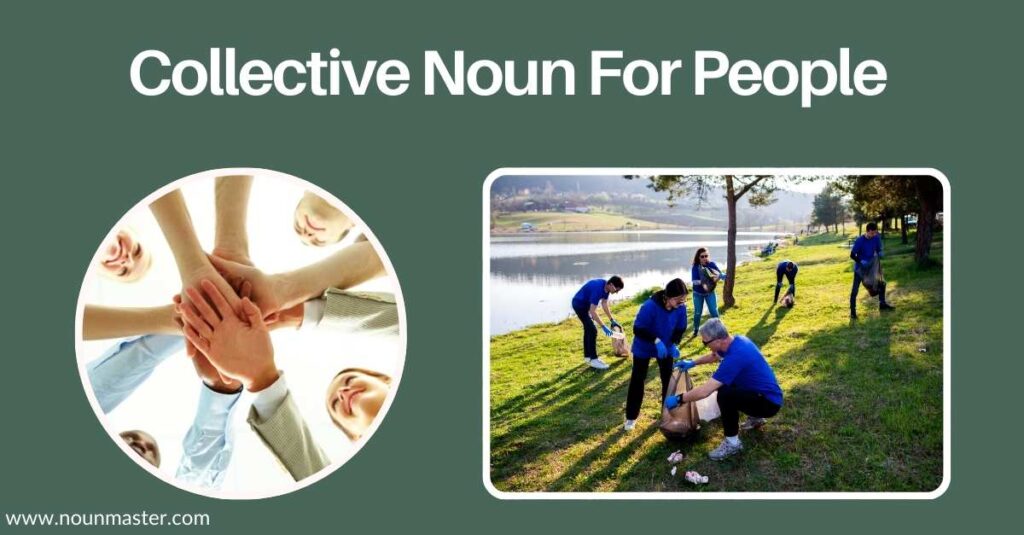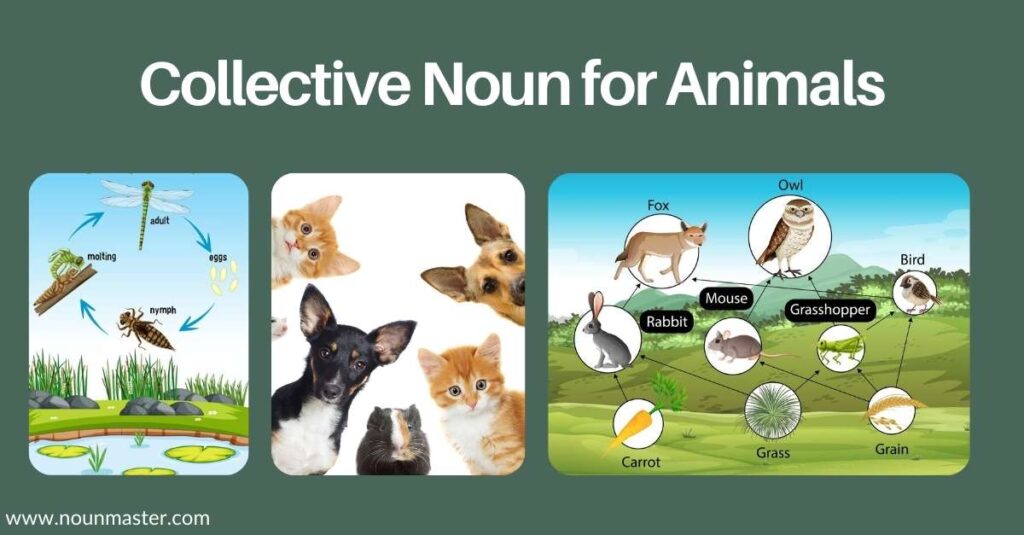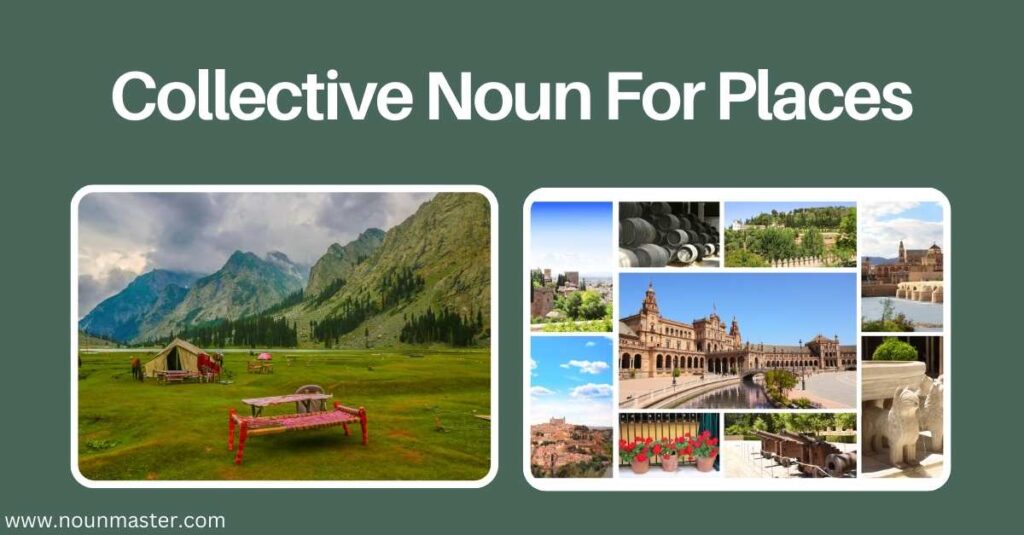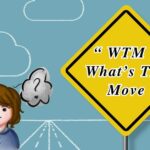Ever thought about how we group people or things together in English? The power of collective nouns, like the “Collective Noun For Players,” lies in their ability to simplify our language by turning multiple individuals or objects into one term.
These examples of collective nouns not only make our speech and writing clearer but also add depth and precision to how we describe groups. Let’s dive into the most important collective nouns and discover how they enhance communication.
Simple Definition of Collective Noun
Collective nouns in English grammar are words that refer to groups or collections of things, people, animals, or places considered as a single unit. These nouns group individual items or beings under one term, making it easier to describe large numbers or collective entities in a simple, effective way.
Collective Noun for Directors: Discover the Term for a Group of Directors
For example
- People: A team of athletes, a crew of workers, a class of students.
- Animals: A flock of birds, a herd of elephants, a swarm of bees.
- Things: A set of tools, a bunch of bananas, a collection of books.
- Places: A city of skyscrapers, a forest of trees, a range of mountains.
Here’s a table with 100 examples of collective nouns, each representing a group with a sentence to clarify its usage. The selection ensures relevance and practical application.
Collective Noun For People

These collective nouns are specific to groups of people and highlight various contexts where they are used. Let me know if you need further clarification! Here is a table with 25 important collective nouns related to groups of people, along with simple examples:
| Collective Noun | Example |
| A team of players | The team of players celebrated their victory. |
| A crowd of spectators | A crowd of spectators gathered at the stadium. |
| A class of students | The teacher addressed the class of students. |
| A group of friends | A group of friends went to the park together. |
| A committee of experts | The committee of experts reviewed the proposal. |
| A crew of sailors | The crew of sailors worked hard to keep the ship afloat. |
| A band of musicians | A band of musicians performed at the concert. |
| A jury of judges | The case was decided by a jury of judges. |
| A choir of singers | The choir of singers rehearsed for the show. |
| A family of relatives | A family of relatives gathered for the reunion. |
| A staff of employees | The company hired a staff of employees for the project. |
| A gang of thieves | The police arrested a gang of thieves. |
| A panel of experts | A panel of experts discussed the topic on television. |
| A congregation of worshippers | The congregation of worshippers prayed in the church. |
| A troupe of dancers | The troupe of dancers performed gracefully on stage. |
| A platoon of soldiers | The platoon of soldiers marched in unison. |
| A squad of police officers | A squad of police officers arrived at the scene. |
| A mob of protesters | A mob of protesters demanded justice. |
| An audience of listeners | The audience of listeners applauded the speaker. |
| A delegation of diplomats | The delegation of diplomats attended the summit. |
| A board of directors | The board of directors discussed the company’s future. |
| A party of tourists | A party of tourists visited the historical site. |
| A line of passengers | A line of passengers waited to board the bus. |
| A troop of scouts | The troop of scouts explored the forest. |
| A posse of detectives | A posse of detectives searched for clues. |
Collective Noun for Animals

Collective nouns for animals describe groups of specific creatures in unique ways. Words like “herd” for cattle, “flock” for birds, or “pride” for lions make language more colorful and precise.
Examples of collective nouns like these terms add depth to descriptions and help identify animals in their natural or social groups. Here is a table of the 25 most important collective nouns related to animals:
| Collective Noun | Example |
| A pack of wolves | The pack of wolves hunted together in the forest. |
| A pride of lions | The pride of lions rested under the shade of a tree. |
| A herd of elephants | A herd of elephants crossed the river. |
| A school of fish | A school of fish swam gracefully in the ocean. |
| A flock of birds | The flock of birds migrated to warmer regions. |
| A swarm of bees | A swarm of bees surrounded the hive. |
| A troop of monkeys | A troop of monkeys played in the trees. |
| A pod of dolphins | A pod of dolphins leaped through the waves. |
| A colony of ants | The colony of ants worked together to build their nest. |
| A gaggle of geese | The gaggle of geese waddled near the pond. |
| A raft of ducks | The raft of ducks floated on the lake. |
| A sounder of pigs | A sounder of pigs rooted around in the mud. |
| A murder of crows | A murder of crows cawed loudly in the field. |
| A parliament of owls | The parliament of owls hooted in the forest. |
| A leap of leopards | A leap of leopards stealthily approached their prey. |
| A crash of rhinoceroses | A crash of rhinoceroses gathered at the waterhole. |
| A bask of crocodiles | The bask of crocodiles lounged on the riverbank. |
| A dazzle of zebras | The dazzle of zebras grazed on the savannah. |
| A skulk of foxes | A skulk of foxes hid in the dense undergrowth. |
| A sloth of bears | A sloth of bears roamed through the forest. |
| A cackle of hyenas | The cackle of hyenas laughed under the moonlight. |
| A parade of elephants | A parade of elephants walked majestically across the plains. |
| A streak of tigers | The streak of tigers prowled through the jungle. |
| A kettle of hawks | A kettle of hawks circled high in the sky. |
| A warren of rabbits | The warren of rabbits darted into their burrows. |
Collective Noun For Things

People use collective nouns for things to describe groups of objects or items together. Words like “bundle” for sticks, “stack” for books, or “fleet” for ships help categorize things neatly.
Examples of collective nouns like these terms make communication clearer and add variety to writing and speech. Here is a table of the 25 most important collective nouns related to groups of things:
| Collective Noun | Example |
|---|---|
| A bouquet of flowers | She received a bouquet of flowers as a gift. |
| A bunch of keys | He lost his bunch of keys at the mall. |
| A pile of books | There’s a pile of books on my desk. |
| A stack of chairs | The staff arranged a stack of chairs in the corner. |
| A set of tools | He bought a complete set of tools for his garage. |
| A string of pearls | She wore a beautiful string of pearls to the party. |
| A collection of stamps | His collection of stamps is very valuable. |
| A fleet of ships | The navy deployed a fleet of ships for the mission. |
| A pack of cards | They played poker with a pack of cards. |
| A cluster of stars | Astronomers discovered a new cluster of stars. |
| A crate of fruit | They delivered a crate of fruit to the store. |
| A heap of clothes | There was a heap of clothes waiting to be washed. |
| A jar of jam | I opened a jar of jam for breakfast. |
| A loaf of bread | She bought a fresh loaf of bread from the bakery. |
| A roll of film | Photographers used to rely on a roll of film. |
| A bundle of sticks | He carried a bundle of sticks on his back. |
| A series of events | The movie describes a series of events that changed history. |
| A batch of cookies | She baked a batch of cookies for the kids. |
| A string of lights | They hung a string of lights on the tree. |
| A tube of toothpaste | The new tube of toothpaste is almost empty. |
| A tray of dishes | The waiter carried a tray of dishes to the table. |
| A pair of shoes | He bought a new pair of shoes for the event. |
| A sack of rice | The farmer sold a sack of rice at the market. |
| A box of chocolates | She gifted me a box of chocolates for my birthday. |
| A bar of soap | He bought a fragrant bar of soap. |
Collective Noun For Places

These sentences describe places where groups of people, animals, or things gather or are located, emphasizing the type of place and its purpose. Here is a table of the 25 most important collective nouns related to places:
| Collective Noun | Example |
| A range of mountains | The hikers marveled at the range of mountains in the distance. |
| A chain of islands | The Pacific is home to a vast chain of islands. |
| A cluster of villages | A cluster of villages lay nestled in the valley. |
| A galaxy of stars | The galaxy of stars lit up the night sky. |
| A forest of trees | The campers pitched their tents in the forest of trees. |
| A grove of olive trees | They walked through a grove of olive trees in Italy. |
| A field of flowers | The field of flowers stretched as far as the eye could see. |
| A desert of dunes | The caravan crossed a desert of dunes under the blazing sun. |
| A stretch of coastline | The tourists admired the stretch of coastline from the cliffs. |
| A network of roads | The city is connected by a network of roads. |
| A labyrinth of caves | They explored a labyrinth of caves deep underground. |
| A cascade of waterfalls | The park features a cascade of waterfalls. |
| A basin of lakes | The region is known for its basin of lakes. |
| A row of houses | The old town has a charming row of houses. |
| A cluster of skyscrapers | The cluster of skyscrapers dominates the city skyline. |
| A web of tunnels | The miners worked in a web of tunnels beneath the surface. |
| A line of cliffs | The ship sailed past a line of cliffs along the shore. |
| A patch of farmland | A patch of farmland surrounded the quaint village. |
| A ring of volcanoes | The Pacific region is called the Ring of Fire due to its ring of volcanoes. |
| A belt of forests | The tropical region is covered by a belt of forests. |
| A plain of grasslands | The wildlife roams freely in the plain of grasslands. |
| A harbor of ships | The sailors docked at the harbor of ships. |
| A maze of streets | The tourists got lost in the maze of streets in the old city. |
| A terrace of vineyards | They toured a terrace of vineyards overlooking the valley. |
| A plaza of markets | The bustling plaza of markets was full of activity. |
Final Thought
Understanding collective nouns is essential to mastering English grammar. These terms allow us to describe groups of people, animals, places, or things with precision and clarity. Examples of collective nouns help enrich our language, enabling us to express ideas more vividly and engagingly. By mastering these terms, we unlock the ability to communicate more effectively, making our language both more concise and colorful
What is the Collective Noun For Rubbish?







